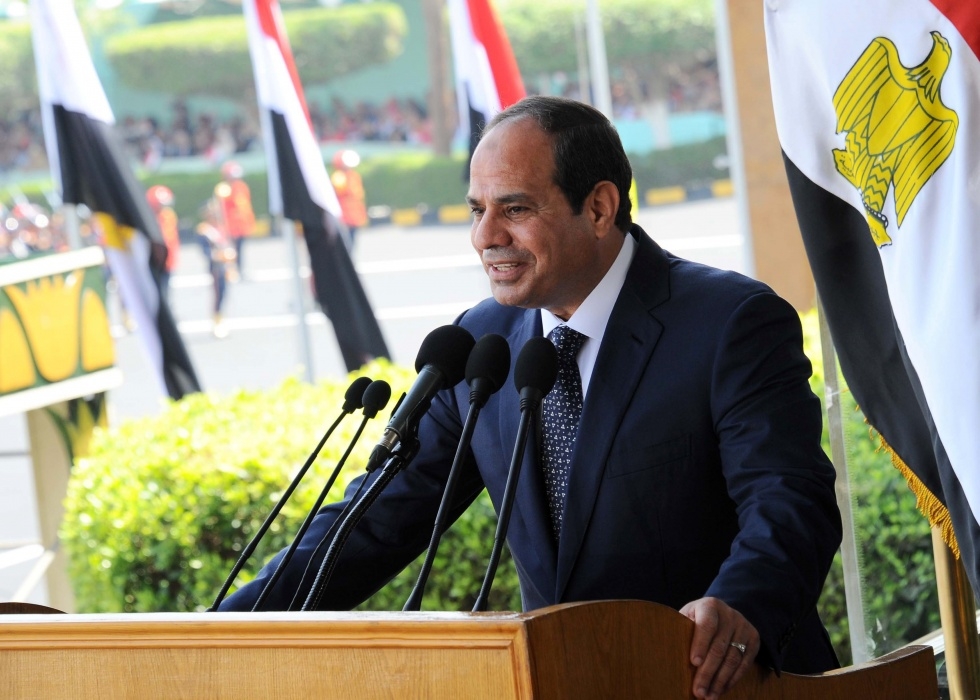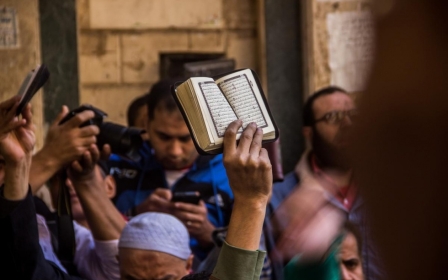Egyptian police shutdown 'atheist cafe' accused of harbouring 'Satan worship'

Egyptian security forces reportedly shutdown an “atheists’ café” in Cairo on Sunday, according to local media, with officials accusing it as being a place of “Satan worship”.
The café, on Falaky Street in the downtown neighbourhood of Abdeen, was “destroyed” after local residents reported customers as spreading “wrong thoughts regarding religions”, Arabic-language daily Sada al-Balad reported.
“We have destroyed the café of the devil worshippers in Falaki Street for being illegal and for having a number of atheists spreading their thoughts,” local police chief Gamal Mohi told the daily.
However, when speaking to independent outlet Mada Masr, Mohi denied the café had been demolished and said it was actually shutdown in November “following noise complaints from local residents”.
“There was no demolition involved, only confiscation of the coffee shop’s property,” he said. “This was all done in accordance with the law and legal procedures.”
The café owner was the only person arrested in the raid, according to Mohi, who said he was being held “as his coffee shop was unauthorised, unlicensed, and also because drugs were found inside".
“There was no sign reading ‘atheists’ café’ outside, as nobody would put up such a public announcement. However, it was popularly known as a place for Satan worship, rituals and dances. There were also Satanic drawings at the entrance," the police chief said.
No publicly available evidence has been produced to verify the police chief’s allegations of Satan worship at the café and he did not explain why atheists – who reject the existence of both God and Satan – would be engaging in such practices.
Egyptian rights activists denounced the café closure as being “the wrong and criminal action”, providing the business was operating legally.
“No one has the right to arrest someone for his thoughts,” Ali Atef, from the Arabic Network for Human Rights Information, told The Cairo Post. “And to be fair and honest, usually these incidents happen for arresting atheists, and later they explain that the café papers were illegal, which is usually wrong.”
Atheism is a sensitive subject in Egypt – a highly religious country – although it is not criminalised by law. On 12 December, government clerics released polling that said the country has precisely 866 atheists, in research ridiculed by secular activists.
"In pragmatic terms, you can’t make scientific studies about how many atheists or agnostics there are – we’re in a country where talking about ideology other than Islamic is a stigma,” Rabab Kamal, a spokesperson for Egyptian group The Secularists, told The Guardian.
The research defined an atheist as not only someone who does not believe in deities, but also those who support a secular state and Muslims who have converted to other religions.
Although being an atheist is not illegal in Egypt “defaming, insulting or ridiculing” the Abrahamic faiths – Islam, Christianity and Judaism – can result in prison sentences of between six months and five years, as well as a fine of up to $140.
Analysts have explained authorities could be cracking down on atheists to head off support for the now banned Muslim Brotherhood, who - along with other religiously based groups - have said President Abdel-Fattah Sisi is leading a "war on Islam" by reducing space for government critics.
“The increase in the atheist wave could support the Islamists’ stance that only they are the guardians of religion,” said Ahmed Samer, founder of The Secularists. “It will be an opportunity for the Islamists to gain a bigger base in the streets.”
Since the July 2013 overthrow of the Brotherhood's Mohammed Morsi as president, former army chief turned president Sisi has tolerated little dissent from government critics. Tens of thousands of people have been detained across the country and thousands killed as protests have been attacked by security forces.
New MEE newsletter: Jerusalem Dispatch
Sign up to get the latest insights and analysis on Israel-Palestine, alongside Turkey Unpacked and other MEE newsletters
Middle East Eye delivers independent and unrivalled coverage and analysis of the Middle East, North Africa and beyond. To learn more about republishing this content and the associated fees, please fill out this form. More about MEE can be found here.




